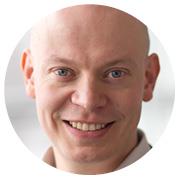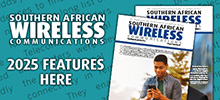20 December 2022

Who was your hero growing up?
I was brought up to respect integrity, people devoted to their values, but also to admire people who were innovative and prepared to think out of the box. However, it seemed right not to idolise individuals, but to recognise the importance of cooperation.
What was your big career break?
I am curious and interested all kinds of fields ranging from history, social sciences, linguistics etc., but technology innovations have always had a special spark. ICT was taking giant leaps and I wanted to be part of it. I applied to do my military service in signalling with digital systems and went to study related fields in the university. An opportunity to write my master’s thesis on TETRA opened back in 1997, when my semester break time superior in Nokia moved to the Nokia PMR unit. It felt like a great combination of being allowed to work with leading edge technology and at the same time make a real difference in contributing to the saving of lives around the world.
What’s the best piece of advice you’ve been given?
It is debatable if this is really the best or even a good one, but nevertheless one that I have tried to follow is “nothing is to be shamed for.” With this I have been able to take a step forward to uncertainty and out of my comfort zone.
If you had to work in a different industry, which one would you choose?
I devote part of my time to help charities develop their fundraising and volunteer management processes and systems. It is another way of trying to contribute to developing a better world. In critical communications it is about saving lives and protecting societies by enabling first responders and others to conduct their duties efficiently and safely. Charities in turn bring help and relief to the ones in need via different route.
What would you do with $1 million?
Could we make it $100 million? I would split in three.
One third to directly support the charities I care for. One is devoted to increasing literacy around the world and as part of it to protect as far as possible spoken languages from extinction. Being able to express oneself in your own language is a basic need.
Second, to invest in some critical communications start-up phase company that has a novel idea about how to increase operational efficiency in information centric field operations.
The final third would be for a similar investment, but in the charity technology sector. There are plenty of opportunities to communicate to and involve donors and volunteers deeper into the mission of a charity. However, developing suitable tools for that may not be very high on commercial companies’ agendas.
Where would you live if money was no object?
Summers with plenty of light in Finland are wonderful, but it is fair to acknowledge that in November – January it would be quite enjoyable to be elsewhere. I have felt rather good wherever I have lived, but I do value access to nature, safety, working process as well as clean air and water (in addition to high-speed reliable internet). Coming to think about it, it is stress free to live in a trust-based society. Perhaps, that is a contributing factor as to why Finland was rated as the happiest country in the world recently.
What is the most challenging aspect of your job?
My role in TCCA is to help build a safer and more secure future. However, everyone in the sector is already quite busy with the present and sometimes past issues. Convincing and bringing stakeholders across the entire sector, including vertical markets, together to invest into the future with great potential return is the most challenging part.
TCCA has been rather successful in achieving this. We have established the Critical Communications Broadband Group that consists of all the stakeholders in the value chain, giving us a unique opportunity to take every relevant aspect into account. A remarkable example is the creation of a white paper on Mission Critical Broadband Device Procurement that addresses the realities from the industry as well as from the user and operator sides for optimum outcomes. Now we are looking into challenges that Massive Mission Critical Video brings, looking into specific cybersecurity questions for the sector and the creation of a common 3GPP standard conformance certification for mission critical services together with the Global Certification Forum (GCF) just to mention few.
‘Success In Cooperation’ – the theme for Critical Communications World 2023 – is true. Mutual trust, openness and joint work brings us the results.
If you could dine with any famous person, past or present, who would you choose?
Dining with Jesus would be quite remarkable. His teachings are being interpreted in so many ways today; it would be very interesting to ask about them first hand.
From the present day I am certain I would be able to get food for thought with many of those that are leaders in their sector – be it in science, business, politics, culture or even religion.
What’s the greatest technological advancement in your lifetime?
In my mind there are two competing things: mobile communications and the internet. Together they have changed the way we live and our societies work profoundly.
These relate also very strongly to our present-day situation with critical communications. In the previous technology cycle 25 years ago, the essence was about digitalisation – moving from analogue technologies to digital one such as TETRA. With that a substantial service improvement was possible. Higher capacity, improved speech quality, increased security and data services like database queries and automatic location. Now, we are on the verge of a new transition the shift from voice centric to information centric field operations. Augmented and virtual reality combined with multi-sensoring interpreted with artificial intelligence are opening new yet to be explored avenues.






